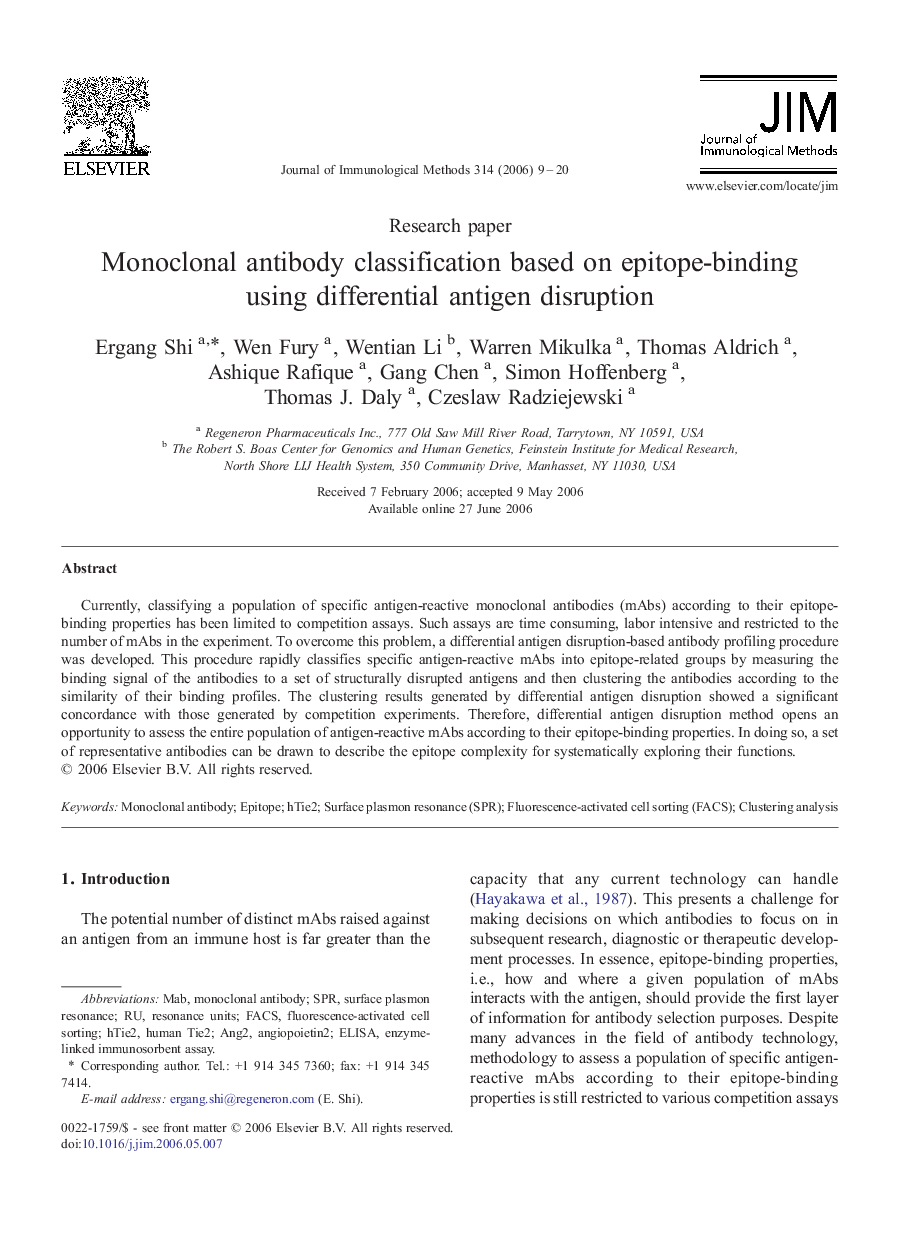| Article ID | Journal | Published Year | Pages | File Type |
|---|---|---|---|---|
| 2089285 | Journal of Immunological Methods | 2006 | 12 Pages |
Currently, classifying a population of specific antigen-reactive monoclonal antibodies (mAbs) according to their epitope-binding properties has been limited to competition assays. Such assays are time consuming, labor intensive and restricted to the number of mAbs in the experiment. To overcome this problem, a differential antigen disruption-based antibody profiling procedure was developed. This procedure rapidly classifies specific antigen-reactive mAbs into epitope-related groups by measuring the binding signal of the antibodies to a set of structurally disrupted antigens and then clustering the antibodies according to the similarity of their binding profiles. The clustering results generated by differential antigen disruption showed a significant concordance with those generated by competition experiments. Therefore, differential antigen disruption method opens an opportunity to assess the entire population of antigen-reactive mAbs according to their epitope-binding properties. In doing so, a set of representative antibodies can be drawn to describe the epitope complexity for systematically exploring their functions.
